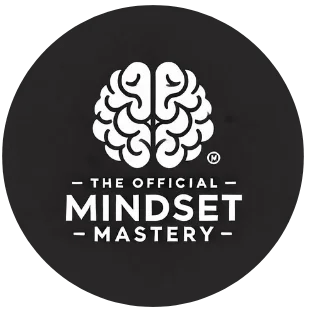Meditation is the basic discipline of attention and awareness, yet beginners may find it difficult. Meditation is about nonjudgmental observation of thoughts and feelings, not silence. Focusing inward calms and clears the mind. The Mayo Clinic says meditation reduces stress, improves cognition, and boosts emotional wellness. Knowing that meditation is flexible and has no “right” technique might help novices relax. Consistency is crucial while sitting in quiet, focusing on your breath, or doing a guided meditation.
Setting Up Meditation Space
Set the mood for your meditation session with a serene and comfortable atmosphere. A peaceful area where you can sit without disturbances is plenty. To set the mood, some add pillows, candles, or music, but simplicity is crucial. A dedicated meditation environment might help your brain identify it with relaxation and mindfulness, according to Psychology Today. Consistently meditating in the same spot will help your mind relax and settle into your practice each day.
Start with Brief Sessions
Beginners should start small. You only need a few minutes of meditation a day to start seeing results. Starting with 5- to 10-minute sessions helps you form the habit without stress. Headspace, a popular meditation program, warns newcomers that meditating too long can frustrate them. Instead, gradually lengthen your sessions as you get used to it. Even a few minutes of daily meditation can improve mental and emotional health.
Focusing on Breathe
Breath awareness meditation is simple for beginners. Breathing helps your mind stay focused and avoid wandering thoughts. Sit comfortably, close your eyes, and observe your breath. If your mind wanders (it will), slowly return to your breath. The parasympathetic nervous system calms the mind and reduces tension when you focus on your breath during meditation, according to the American Psychological Association. This basic technique is a great meditation start.
Supporting via Guided Meditation
Beginners benefit from guided meditation’s structure and direction. A teacher or storyteller leads guided meditation, which often emphasizes breathwork, relaxation, or imagery. Mindful says guided meditations help beginners focus and be present by providing a clear route. Online options include Calm and Insight Timer, which offer free guided meditations for beginners. This can help you start by eliminating some of the guessing and letting you try different meditation approaches.
Let Go of Perfection
Beginners often fear that they’re “doing it wrong” if they can’t focus or their thoughts stray. Meditation requires letting go of perfection. Thoughts should be observed without becoming caught up in them, not eliminated. One widespread misperception regarding meditation is that your mind must be entirely still for it to work, according to The Greater Good Science Center. Meditation naturally generates thoughts. Practice gradually bringing your attention back to the present without frustration or judgment.
Trying Different Meditations
As a novice, you may wish to try different meditations to find what works for you. Common types include mindfulness, loving-kindness, and body scan meditation, which focus on different parts of the body to release stress. According to the Cleveland Clinic, trying several meditation practices can help you find one that suits you. Try different methods until you find what works for you.
Consistency Matters
Meditation requires consistency, like any new habit. The benefits of meditation need frequent practice, but you don’t need to meditate long. A Journal of Cognitive Enhancement study found that even brief daily meditation can improve focus, emotional regulation, and mental health over time. To establish a routine, meditate daily at the same time. Consistency will help you make your practice a habit, whether it’s in the morning to calm down or in the evening to relax.
Be Patient, Self-Compassionate
Beginners must be patient. Meditation takes practice, therefore it’s normal to have problems. Even while some days are harder than others, every workout is beneficial. Harvard Medical School recommends self-compassion in meditation to embrace your experience without judgment or irritation. Be patient with yourself while you meditate, and trust that it will become more intuitive.
References
Mayo Clinic (2020). Meditation: Easy, Fast Stress Reduction.
Psychology Today (2018). Home Meditation Space Creation.
Headspace (2019). Meditation for Beginners.
APA (2020). Benefits of Breath Focus.
Mindful. (2019). The Power of Guided Meditation.
Greater Good Science Center (2017). Meditation Misconceptions and Solutions.
Cleveland Clinic (2020). Beginner Meditation Types.
Journal of Cognitive Enhancement. (2019). Consistent Meditation Benefits Long-Term.
Harvard Medical School (2018). Success requires self-compassion and meditation.




